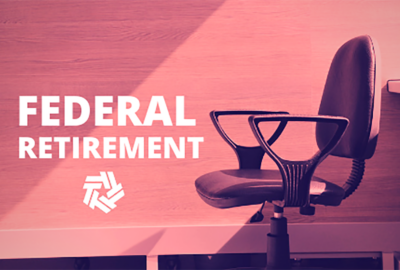Retirement from work isn’t retirement from life
Retirement from a career should mean an exciting new phase in life — not a glidepath to the graveyard. Federal retirees tend to be a feisty group.
Retirement from a career should mean an exciting new phase in life — not a glidepath to the graveyard. Federal retirees tend to be a feisty group. One reason is they tend to prepare carefully. Retirement expert Tammy Flanagan joined the Federal Drive with Tom Temin with some observations.
Interview transcript:
Tom Temin: I guess we’re both fresh back from the National Association of Active and Retired with the emphasis on retired federal employees conference and so lots of contact with people that are by no means sitting around needle pointing in their post federal careers.
Tammy Flanagan: Well, that’s right Tom, and first of all, I have to tell your audience what a wonderful public speaker you are, just not on the radio, but in front of about 500 retirees who can be very critical. But they loved you and it was a wonderful keynote address that you gave us. I was really impressed.
Tom Temin: Well, thank you. It was a privilege to talk with them, actually.
Tammy Flanagan: So back to your question about the federal and retirees. Yeah, they are a feisty group and they’re very active. And I like to talk about this because I think when employees move into retirement, it’s not like it was in 1920 where retirement is going to be a 10-year thing. It’s going to be decades 10 years, 20, 30, and from the looks of those retirees we saw, they’re very active well into their eighth decade of life or beyond.
Tom Temin: Right. And they maintain a interest in the operation of the TSP, the operation of the federal retirement apparatus in general, and they are well aware of legislation and just the general I guess you’d call it the environment surrounding retirement and retirement benefits, I guess self-interest, but also some real keen interest there.
Tammy Flanagan: Yep, even the keen interest on what’s happening with the employee groups, even though they’ve retired, they want to make sure that the federal employees are still being treated fairly and maintaining those benefits that they so much really treasure and value.
Tom Temin: And by the way, they also active in other ways. I took a walk one morning, just a two-mile walk, which is not that far for me, to see what downtown St. Louis actually looks like. And it’s one of those faded, monumental avenue types of cities definitely have faded there too. And I passed a bunch of people doing yoga outside, so I didn’t get too close to them. Turns out that was the NARF group.
Tammy Flanagan: I was among them. I debated whether or not they get up that early because we met at 6:45 in the morning, which was pretty early when I had to speak later that day. But yeah, it was a great view. We saw the arch there and the old courthouse building, and just a beautiful morning. So I live in Florida and it can be really hot here, even in the morning. So I love that refreshing, cool breeze coming off the was that the river we were there? I’m not sure.
Tom Temin: Yeah. the Mississippi River.
Tammy Flanagan: Mississippi, OK. No retirement. I don’t know geography quite as well.
Tom Temin: You had some good advice for those people that I think is a couple of points worth reiterating. And the one that sticks in my mind, if I were a Fed is just to keep your hold on your federal employee health benefit plan after you retire.
Tammy Flanagan: Yeah, that’s critically important is to maintain those federal health insurance and I was looking at some statistics this morning of the retirement population of employees moving into retirement. And as you might expect, the majority of employees who retire do maintain their health insurance. And I think for the most part, they know that if they drop those insurance benefits, it’s a one-way ticket out. So it’s pretty much a lifetime commitment for them and hopefully also, if they’re married for their spouse to maintain that even as a survivor.
Tom Temin: And I think the larger implication there is people also have benefits related to Medicare while they’re in retirement, regardless whether you’re a Fed or any other retiree, and Medicare is not an unlimited program. No,
Tammy Flanagan: No, Medicare is not. Well, one thing that everybody should know is that Medicare doesn’t have catastrophic coverage. So if all you had was Original Medicare, which is a and b: the hospital part and the outpatient part, that’s not enough. It’s OK if you stay pretty healthy, but if you have some chronic illnesses later in life, you’ve got to have something to supplement Medicare. And the private sector, people have Medigap plans or Medicare supplemental plans or over half of Americans on Medicare have an advantage plan. The ones that are sometimes advertised on late night TV by Joe Montana or The Fonz or whoever else is on there given those ads. So we in the federal sector of that area with Medicare, we use federal health benefits to supplement Medicare. Or if you’re a military retiree, you’re using TRICARE for life. So it’s a little bit narrower group of benefits to choose from, but very, very valuable and very good supplements, very good. We call that wraparound coverage. That term was coined, I think, by Walton Francis from the Checkbook Guide. But I like that because it does wrap around Medicare, leaving you with very little out of pocket expense. But the thing is, federal retirees have a choice. They don’t have to enroll in Medicare. They can still maintain their federal health insurance without adding Medicare to it. That is with the exception of upcoming postal retirees. Postal employees who retire after this year will be required to have Medicare, otherwise they stand to lose their health insurance, very similar to how our military folks are.
Tom Temin: And everybody else in the economy.
Tammy Flanagan: Everybody else in the United States, that’s right.
Tom Temin: We are speaking with Tammy Flanagan. She’s a principal at Retire Federal and an expert on all things retirement when it comes to the federal government, which, by the way, what we just talked about with respect to the need to supplement, in some way, Medicare. When you hear some of the politicians talk about Medicare for everybody, be careful what you wish for because it is a system that runs out on people.
Tammy Flanagan: So yeah, I think what we’re hearing in the political world is that Medicare Advantage seems to be taking over Original Medicare. And that might be OK. I’m not sure. There’s some things about Medicare Advantage plans that people need to know. Sometimes those plans are much more restricted networks. So it’s kind of like if you’re in an HMO and you have a list of doctors, and you really can’t go outside of that network for care. Another issue that has been coming up with Advantage plans and I don’t know that either one of these issues are prevalent in the federal health benefit plans that offer advantage options. But in the private sector, I’ve seen reports from the OIG of HHS who are saying that there’s much more prevalence of getting pre-approvals denied, and then you got to go back and appeal that, and by the time you do that, you’re sicker or you’re worse. So be careful about enrolling in those Advantage plans because the free meal deliveries and the free gym membership just may not be worth those extra perks if you’re going to lose very good and comprehensive health benefits. I’m a little leery there. I’m not sure that that’s a valid fear but I have read enough about it that I’m a little bit cautious when I go into looking at those plans. Now, as I was talking to some of the reps because we had all the federal health benefit reps or many of them there at the conference. So I love that when I get a chance to talk to them and find out what really is behind that and some of them were telling me that if you enroll in the federal health plan that offers an advantage option, sometimes you have to live in that Zip code to enroll. But once you’re in it, that underlying FEHB Program still gives you nationwide coverage, so you’re not necessarily limited as much as you might be with a private Medicare Advantage plan. So luckily, we still have the option to do something other than Medicare Advantage, whether it’s a supplement in the private sector or whether it’s the original FEHB plan that will supplement Medicare. So carefully, choose between those two.
Tom Temin: All right, so in the time we have left, Let’s lighten this up a little bit, because hopefully, you’ll live a long, healthy life. And I mean, it’s like lawyers doctors, the less you have to do with them, the better off your life is going to be. Let’s face it.
Tammy Flanagan: Exactly.
Tom Temin: But looking at the federal retiree population, let’s do a little trivia here, which states have the most federal retirees?
Tammy Flanagan: That’s a trivia question I like to ask my audiences because I think people think it’s my state, here in Florida, which that is No. 2. Florida does hold the second largest amount of retirees but if you think in terms of population and coastline, California would come to mind. So California does have well over 200,000 federal retirees. That state also has the largest number of federal employees. So that kind of stands to reason. No. 3 might come as a surprise too. We don’t think of Texas as a federal enclave, but the size of Texas does have the third most amount. And then, of course, we always come back to the DMV. So Maryland is No. 4 and Virginia is No. 5, and guess who holds No. 6? What do you think is, after those five, what do you think is the sixth largest population of retirees?
Tom Temin: I would guess New York.
Tammy Flanagan: You’re close, very close.
Tom Temin: New Jersey.
Tammy Flanagan: My hometown.
Tom Temin: Pennsylvania, All right.
Tammy Flanagan: It’s a great place to grow old. They have a lot of services for the elderly because 100% of the Pennsylvania lottery goes to services for the elderly.
Tom Temin: And that was also the capital of the United States before they established Washington, D.C. So maybe there’s a good tradition there. And who has the fewest? South Dakota, I’m guessing.
Tammy Flanagan: Oh yeah, the fewest? Well, South Dakota is not in the top. It’s Vermont is the No. 1 with the smallest population of retirees. And that makes sense with the size of Vermont and how far away it is from a lot of major metropolitan areas. Then No. 2 is Wyoming, so close second, North Dakota, Rhode Island and then Alaska. Alaska has over 9,000 federal retirees. It’s not a huge population, but some people might be surprised, there’s that many retirees up in the land of cold weather in the winter, and beautiful, endless summer sun in the summers.
Tom Temin: And looking at them from age standpoint, there are some people that are over 100?
Tammy Flanagan: Yes. It’s surprising because we do have a growing population of centenarians, according to the Census Bureau. That is, I think, the largest or the fastest growing segment of our population is those people who are reaching age 100 that’s supposed to really very much multiply over the next. Let’s see. I’m 67. So I have over the next four decades because I’m kind of thinking, ‘When am I going to be 100? How many of us will there be if I make it that long?’ But on the federal rolls, the population of people over 100 years old is over 2,500 individuals, which only makes up one-tenth of 1% of the retirement population. But what is surprising is the survivors of federal retirees. That population is almost a full 1% of the survivor benefit population. It’s over 4,000 of those folks are now over age 100 so little surprising.
Tom Temin: And on a less optimistic note, a certain number of employees die before they reach retirement.
Tammy Flanagan: Yeah, unfortunately Tom, that’s true. There are employees who pass away prior to retirement unfortunately, and that is in the thousands. So what’s important to understand there is that if an employee does not make it to retirement, there are survivor benefits for their spouse and their children. So even though you’ve never made those elections, you can still get lifetime survivor benefits. If you survive a federal employee who passed away and their children are entitled to benefits at least until they get out of high school, if not college, depending on which system and whether or not they’re covered under Social Security as well.
Tom Temin: All right, so the best day to retire, then the question we ask rhetorically often is, make sure it’s one while you’re still here and can enjoy retirement.
Tammy Flanagan: That’s right. Don’t wait too long, right? And I found this at the conference as well, speaking to employees that they talked about their co-workers who are still employed, and they’re confused as to, why don’t they join us in retirement? Because they’ve been there for 45 years, or in some cases, and they just feel like there must be some fear of the unknown or fear of change because I think a lot of us don’t like change. But don’t wait too long because those folks were having a pretty good time there from what I could tell.
Copyright © 2024 Federal News Network. All rights reserved. This website is not intended for users located within the European Economic Area.
Tom Temin is host of the Federal Drive and has been providing insight on federal technology and management issues for more than 30 years.
Follow @tteminWFED






